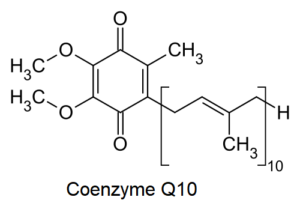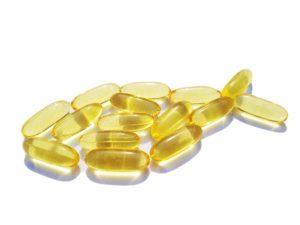The Potential Health Benefits of Frankincense

With the Christmas season upon us, I wanted to explore the benefits of an herb often associated with the holiday: frankincense.
Frankincense is a gum or resin secreted from the tree Boswellia serrata. The resin has been used as an anti-inflammatory treatment in Ayurvedic medicine for thousands of years. And like a lot of other herbs with a long history of historical use, the latest research is starting to support its potential benefits.
Some of the conditions with research suggesting benefits from frankincense includes:
- High blood sugar and cholesterol
- Osteo- and Rheumatoid Arthritis
- Inflammatory bowel disease
- Neurological conditions like Parkinson’s and Alzheimer’s disease
Blood Sugar and Cholesterol
Metabolic syndrome is a common condition that often includes obesity, blood sugar problems, increased blood pressure and high cholesterol. Research on frankincense is starting to show that it may help in treating a number of the fundamental components of the condition.
Animal studies have shown beneficial effects of frankincense on blood sugar and cholesterol. In rats fed a high fat diet, higher doses of frankincense extract halved blood sugar and reduced LDL cholesterol from 154 to 25 mg/dl. Interestingly, the obese rats lost 10% of their body weight with frankincense, although they were still heavier than control animals (Gomaa 2019). In a separate study on diabetic rats, frankincense almost completely restored blood sugar, insulin and cholesterol to normal levels (Gomaa 2019).
Human studies are also showing promise. One study used frankincense in addition to standard diabetes medication and reduced fasting blood sugar more than 25 points as compared to medication alone. In addition, patients had better cholesterol, insulin and triglycerides with the extract (Azadmehr 2014). Similar findings were found in a separate study on diabetics with frankincense (Ahangarpour 2014). However, not all studies reported benefits. A third study that used a lower dose found no effects on blood sugar or cholesterol with frankincense, potentially due to using too low of a dose (Mehrzadi 2016).
Arthritis
Frankincense has well documented anti-inflammatory properties with a lot of focus on 5-lipoxygenase pathways (5-LOX) (Siddiqui 2011). 5-LOX is thought to play a part in a number of chronic inflammatory conditions, from asthma to arthritis and autoimmune conditions (He 2020). In a recent trial of knee osteoarthritis, three months of frankincense extract reduced reported pain from 6.4 to 3.7 on a ten point scale (Majeed 2019). A separate trial on osteoarthritis of a trademarked frankincense extract reduced pain scores by half in just 30 days. Of note, patients in the study had significant pain reduction within the first week (Vishal 2011).
An earlier study on rheumatoid arthritis appeared to show less potent effects. While frankincense didn’t show statistically significant improvements, there were trends suggesting the herb might still be helpful for some patients (Sander 1998). An earlier study with less defined outcomes on the same frankincense product also suggested possible benefits for some patients with rheumatoid arthritis (Etzel 1996).
A recent meta-analysis on frankincense for knee arthritis concluded that it could be a valuable additional treatment option. However, the author’s also noted that most studies were small and of lower quality. Like most types of natural medicine, more research could help clarify the benefits.
Inflammatory Bowel Disease and Irritable Bowel Syndrome

Studies on bowel disease and frankincense also show some promise although with some variability. It’s worth noting that different types of extracts from the same herb may have different clinical effects which could be part of the reason for variable outcomes.
A small study on collagenous colitis compared frankincense to placebo. Overall, 64% of patients on frankincense went into remission within six weeks, as compared to 27% on placebo (Madisch 2007). An earlier study on ulcerative colitis found 82% of patients achieved remission as compared to standard drug therapy which achieved 75% remission (Gupta 1997). On the flip side, a study in Crohn’s disease found no benefit with frankincense in maintaining remission (Holtmeier 2012).
Irritable bowel syndrome is a common gastrointestinal complaint that is less severe than inflammatory bowel disease. Symptoms typically include constipation or diarrhea with abdominal pain. A recent trial using frankincense extract as compared to standard care showed better outcomes with less side effects using the herb (Riva 2019).
Neurological Conditions
Many neurological conditions are difficult to treat, including Parkinson’s disease, multiple sclerosis, Alzheimer’s disease and stroke. While the data is mostly preclinical, there’s significant interest in the potential protective benefits of frankincense for brain health. Most neurological conditions develop long-term damage from inflammation. Frankincense appears, in animal studies, to have neuroprotective effects that might be relevant for human health. Small clinical trials in multiple sclerosis have shown benefits in improving some aspects of brain function (Rajabian 2020).
Considering the difficulty in treating most neurological conditions and the strong safety profile of frankincense, it could be an attractive approach if additional human trials can document significant effects.
Conclusion
Frankincense is an interesting anti-inflammatory herb with a number of potential clinical uses. While we need more data, benefits for blood sugar and cholesterol, arthritis, bowel diseases and neurological conditions may be significant.



